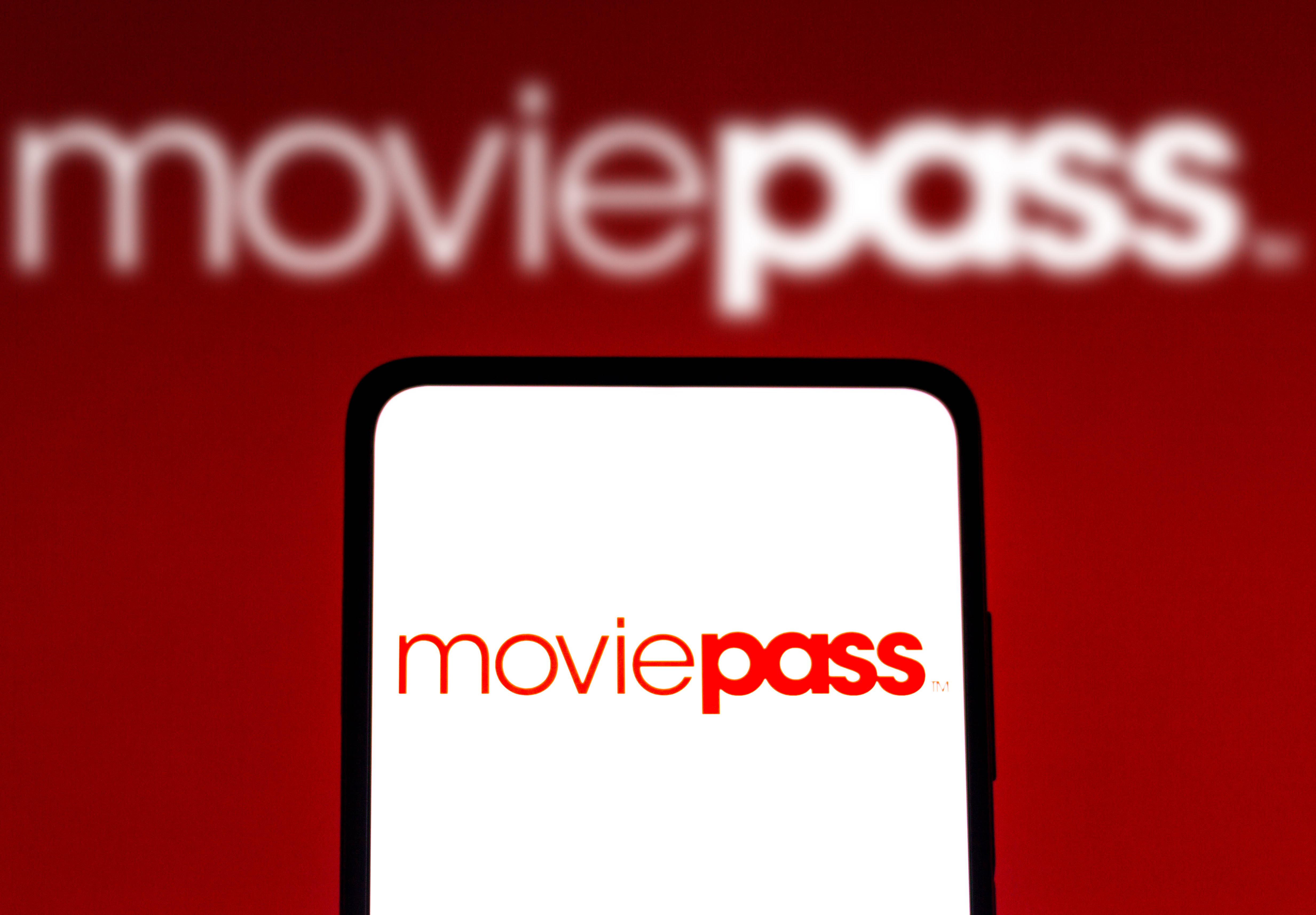The return of MoviePass: Everything we know
Can the subscription-based ticketing service successfully return after a spectacular collapse?


A free daily email with the biggest news stories of the day – and the best features from TheWeek.com
You are now subscribed
Your newsletter sign-up was successful
After a spectacular collapse that included securities fraud charges against its CEO, MoviePass has officially returned. A relaunched version of the movie subscription service has been in beta since last year, but it was made available nationwide for Memorial Day weekend. Like before, subscribers pay a monthly fee in exchange for a card that can be used to purchase movie tickets, but there are a few key differences between the new version and the old one.
How does the new MoviePass compare to the old one?
MoviePass has been around since 2011, but it exploded in popularity in 2017 thanks to an offer that seemed too good to be true: For just $9.95 a month, users could see one movie in theaters every day.
It sounded financially unsustainable, and it was — the service instituted restrictions before eventually collapsing, and parent company Helios and Matheson Analytics filed for bankruptcy in 2020.
The Week
Escape your echo chamber. Get the facts behind the news, plus analysis from multiple perspectives.

Sign up for The Week's Free Newsletters
From our morning news briefing to a weekly Good News Newsletter, get the best of The Week delivered directly to your inbox.
From our morning news briefing to a weekly Good News Newsletter, get the best of The Week delivered directly to your inbox.
That $10 one-movie-a-day offer is gone with the new version of MoviePass. Instead, subscribers now receive a certain number of credits per month depending on the plan they sign up for, and these credits can be exchanged for movie tickets. But "a movie's credit value will vary based on demand and factors like time of day" and "day of the week," according to MoviePass' website.
What are the new MoviePass plans?
MoviePass now offers four plans ranging from $10 to $40 a month.
The basic plan is $10 a month for 34 credits. MoviePass estimates this works out to about one to three movies a month, depending on when you see them. To get three movies out of the basic plan, for example, you may need to opt for earlier showtimes. The standard plan is $20 a month for 72 credits, or between three and seven movies. The premium plan is $30 for 113 credits, or between five and 11 movies, while the pro plan is $40 for 640 credits, or about 30 movies. The pro plan comes closest to the 2017-18 era of MoviePass — the movie-a-day package — but it's now much more expensive.
In the New York metro area and Southern California, the prices are higher: $20 a month for the basic plan, $30 for standard, $40 for premium, and $60 for pro.
A free daily email with the biggest news stories of the day – and the best features from TheWeek.com
Do credits roll over?
Yes. MoviePass says unused credits roll over to the following month, but subscribers can only have up to two months of credits in their account at once. For example, for subscribers with the basic plan (34 credits a month), their account can hold a maximum of 68 credits.
Are there any restrictions?
All four of the current MoviePass plans, including pro, can only be used for standard 2D movies at this time. But on its website, Moviepass says "access to large format and premium screens is coming soon."
How do these plans compare to other subscription services?
A movie ticket subscription service was a fairly unique offering in 2017 when MoviePass dropped its prices to $10 a month. But since then, theater chains themselves have launched their own subscription services, like AMC Stubs A-List and Regal Unlimited.
AMC Stubs A-List starts at $19.95 per month and allows subscribers to see three movies a week, including in premium formats like 3D and IMAX. A-List subscribers can also earn points that can be redeemed for popcorn and drinks. Regal Unlimited, meanwhile, starts at $18.99 a month, and subscribers can watch as many movies as they want, though there's a surcharge for premium format screenings. Unlimited also offers a 10 percent discount on concessions.
But the main benefit of MoviePass is that it isn't limited to one theater chain. Whether or not the service is worth it, then, depends greatly on how many types of theaters you frequent. If you see films exclusively at AMC, for example, A-List is likely your best bet. Frequent moviegoers could also use a basic MoviePass plan to augment an A-List or Unlimited subscription if they sometimes see movies outside of those chains.
What theaters accept MoviePass?
MoviePass says it can be used at "any theater that accepts debit cards," which includes AMC and Regal locations. You can find a list of theaters on the company's website. If MoviePass has partnered with the individual theater, subscribers can also select their seats ahead of time in the app.
Who is behind the MoviePass relaunch?
It would be hard to blame consumers for being wary of MoviePass after the service's catastrophic collapse. The company had, after all, been allegedly changing some users' passwords to prevent them from seeing movies, and former CEO Mitch Lowe was charged with securities fraud and wire fraud. Prosecutors claimed Lowe "directed MoviePass employees to implement numerous tactics to prevent certain subscribers from using the purportedly 'unlimited' service for which they had paid to try to ease MoviePass's cash shortfalls."
MoviePass officially shut down in 2019, but Stacy Spikes regained ownership of the company in 2021 after it filed for bankruptcy. Spikes co-founded MoviePass in 2011 but was fired in 2018, and he has said he disagreed with the decision to lower prices to $9.95.
During a relaunch event last year, Spikes summarized MoviePass' past few years by displaying a picture of the Hindenburg disaster on screen before promising, "That's all behind us." He told the Los Angeles Times it won't be "that hard" for the new MoviePass to avoid the previous iteration's fate, as "the $10 price point was … just dumb."
Brendan worked as a culture writer at The Week from 2018 to 2023, covering the entertainment industry, including film reviews, television recaps, awards season, the box office, major movie franchises and Hollywood gossip. He has written about film and television for outlets including Bloody Disgusting, Showbiz Cheat Sheet, Heavy and The Celebrity Cafe.
-
 How the FCC’s ‘equal time’ rule works
How the FCC’s ‘equal time’ rule worksIn the Spotlight The law is at the heart of the Colbert-CBS conflict
-
 What is the endgame in the DHS shutdown?
What is the endgame in the DHS shutdown?Today’s Big Question Democrats want to rein in ICE’s immigration crackdown
-
 ‘Poor time management isn’t just an inconvenience’
‘Poor time management isn’t just an inconvenience’Instant Opinion Opinion, comment and editorials of the day
-
 Microdramas are booming
Microdramas are boomingUnder the radar Scroll to watch a whole movie
-
 Film reviews: ‘Wuthering Heights,’ ‘Good Luck, Have Fun, Don’t Die,’ and ‘Sirat’
Film reviews: ‘Wuthering Heights,’ ‘Good Luck, Have Fun, Don’t Die,’ and ‘Sirat’Feature An inconvenient love torments a would-be couple, a gonzo time traveler seeks to save humanity from AI, and a father’s desperate search goes deeply sideways
-
 The biggest box office flops of the 21st century
The biggest box office flops of the 21st centuryin depth Unnecessary remakes and turgid, expensive CGI-fests highlight this list of these most notorious box-office losers
-
 The 8 best superhero movies of all time
The 8 best superhero movies of all timethe week recommends A genre that now dominates studio filmmaking once struggled to get anyone to take it seriously
-
 Heated Rivalry, Bridgerton and why sex still sells on TV
Heated Rivalry, Bridgerton and why sex still sells on TVTalking Point Gen Z – often stereotyped as prudish and puritanical – are attracted to authenticity
-
 Film reviews: ‘Send Help’ and ‘Private Life’
Film reviews: ‘Send Help’ and ‘Private Life’Feature An office doormat is stranded alone with her awful boss and a frazzled therapist turns amateur murder investigator
-
 February’s new movies include rehab facilities, 1990s Iraq and maybe an apocalypse
February’s new movies include rehab facilities, 1990s Iraq and maybe an apocalypsethe week recommends Time travelers, multiverse hoppers and an Iraqi parable highlight this month’s offerings during the depths of winter
-
 The 8 best animated family movies of all time
The 8 best animated family movies of all timethe week recomends The best kids’ movies can make anything from the apocalypse to alien invasions seem like good, wholesome fun
